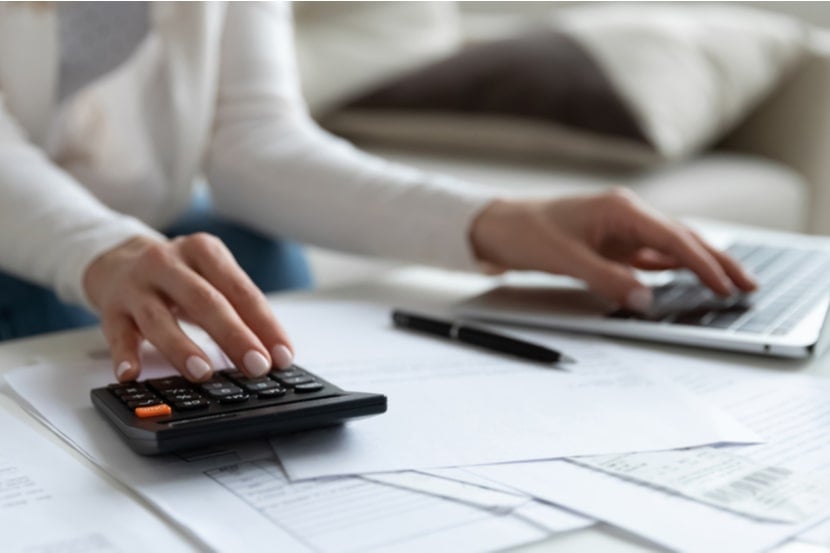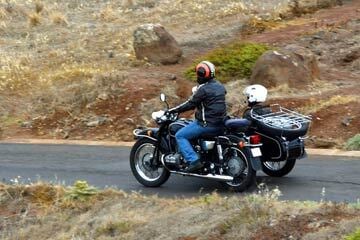Motorbike tax, also known as Vehicle Excise Duty (VED), is required if you want to legally ride your bike on the road.

Key takeaways
- You must tax your motorbike before riding it, unless it’s exempt.
- You can tax your bike online at GOV.UK, by phone through the DVLA, or at a Post Office.
- Riding an untaxed bike is illegal and could result in a fine.
- You won’t receive penalty points, but enforcement action can still be taken.
- Some bikes are exempt, but you still need to complete the tax process.
How to tax a motorbike
You can tax your motorbike at GOV.UK. You'll need to use a reference number with either:
- A 'last chance' warning from DVLA
- Your vehicle log book (V5C)
- The green 'new keeper' slip if you've just bought your motorbike
You can make the payment by debit card, credit card, or by direct debit. You might be able to pay in instalments, but this costs more overall.
You can make the payment by debit card, credit card, or by direct debit. You might be able to pay in instalments but this costs more overall.
If you haven't had a V11 reminder letter, there’s a chance that you may need to change your address as it could be incorrect.
Are there other ways to tax my bike?
You can tax your bike over the phone by contacting the DVLA Vehicle Tax Service on 0300 123 4321. It's a 24-hour service, and you may be charged.
You can tax your bike at your local Post Office too. Along with the V5C logbook and V11 reminder, you need to bring a valid MOT certificate.
You can pay by:
- Direct debit
- Cheque
- Debit or credit card
- Cash
- Postal order
Note: if you live in Northern Ireland, you'll also need a paper copy of your insurance certificate (or cover note) and either an original MOT certificate or Temporary Exemption Certificate (TEC).
If you’ve any other queries about motorbike tax, you can contact the DVLA by:
- Phone: Call 0300 790 6802 - this is available Monday to Friday, 8am to 8pm. It’s also open on Saturdays from 8am to 4pm.
- Email through the contact form on the DVLA website
- DVLA Webchat
- Post at Vehicle Customer Services, DVLA, Swansea, SA99 1AR
I need to tax my bike but I can’t find my logbook. What should I do?
If you can’t find your log book – it’s gone missing, been destroyed or has been stolen – you need to get a duplicate before you can tax your bike. If nothing needs to be changed, you can order a replacement log book online.
How much is motorcycle tax?
The cost of bike tax depends on the size of your motorbike’s engine, rather than the amount of CO2 produced. Usually that means it’s cheaper than VED for a car.
| Engine size | Single 12-month payment | Total of 12 monthly instalments | Single 6-month payment | 6 months by direct debit |
|---|---|---|---|---|
|
Zero emission motorcycle
|
£26
|
£27.30
|
N/A
|
N/A
|
|
Not over 150cc
|
£26
|
£27.30
|
N/A
|
N/A
|
|
151cc-400cc
|
£57
|
£59.85
|
£31.35
|
£29.93
|
|
401cc-600cc
|
£87
|
£91.35
|
£47.85
|
£45.68
|
|
Over 600cc
|
£121
|
£127.05
|
£66.55
|
£63.53
|
These costs are the same for:
- Motorbikes
- Scooters and mopeds
- Quad bikes
- Any motorbike with a sidecar.
How much is tricycle tax?
Tricycles that are zero emission or under 150cc pay £26 or £27.30. For all other tricycles you pay £121, or £127.05 if you pay in 12 monthly instalments.
How to check if your motorbike is taxed
You check the GOV.UK website to see if your bike is taxed.
You need to enter the vehicle’s number plate, and you should then see your motorbike’s make and model.
Once you’ve confirmed, it’ll show you whether your motorbike has valid tax.
You can also see when your annual MOT is due.
How old does a motorcycle have to be to be tax exempt?
You can apply for historic vehicle tax exemption if your motorbike was made 40 years ago.
You still need to go through the tax process – even if you don’t have to pay.
It's not eligible for a tax exemption if it’s used for:
- Hire and reward
- Commercial purposes
- As part of a trade or business.
If you’re in any doubt then contact the DVLA.
Other motorbike tax exemptions
You may qualify for exemption from bike tax if you have a disability.
For example, if you are in receipt of any of the following:
- Higher rate mobility component of Disability Living Allowance (DLA)
- Enhanced rate mobility component of Personal Independence Payment (PIP)
- Enhanced rate mobility component of Adult Disability Payment (ADP)
- War Pensioners’ Mobility Supplement
- Armed Forces Independence Payment
Certain conditions also apply. Such as:
- The vehicle must be registered in the disabled person’s name or their nominated driver’s name
- It must must only be used for the disabled person’s needs.
Only one vehicle tax exemption can apply at any one time.
Do I need motorbike tax?
Yes, you do. It’s illegal to ride on the road without having the necessary tax in place - unless you have a disability or the motorbike is exempt.
You don't get points on your licence for riding your untaxed bike but you could get a fine. This is usually sent to the registered keeper's address.







